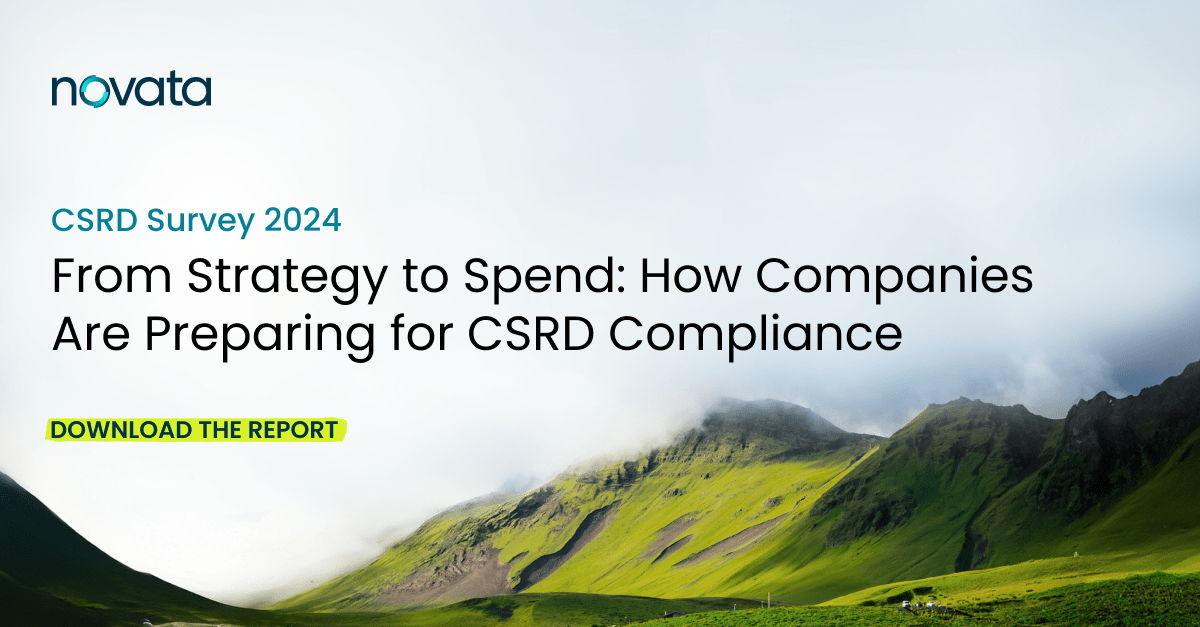Novata's CSRD Survey 2024: How Companies Are Preparing for CSRD Compliance

Executive Summary
The Corporate Sustainability Reporting Directive (CSRD) is a challenging reporting requirement affecting companies not only in the EU but around the world. To gain insights into how prepared companies feel, the biggest challenges they face, and the support they need to comply with the CSRD, Novata conducted a survey to assess the landscape. The results reflect insights from 59 organisations, 83% of which are headquartered in Europe.
Key Survey Findings
PREPAREDNESS
The level of preparedness for CSRD compliance varies widely. Nearly a quarter of respondents were uncertain of their first CSRD disclosure date, while more than half of those with dedicated in-house ESG teams expressed confidence in meeting CSRD requirements.
CHALLENGES
Data collection and management emerged as the most significant hurdle, followed by understanding regulatory requirements and conducting the Double Materiality Assessment (DMA). Despite data collection being the top concern, only 29% of companies have engaged a technology provider.
COSTS
CSRD compliance is also expected to carry a substantial financial burden, particularly in the initial years, with 51% of respondents anticipating annual costs exceeding €100,000. Costs are expected to be proportional to organisation size, as larger organisations have more data to collect and assure, as well as more complex value chains to assess for their DMA. Most large organisations expect to spend over €50,000 on key areas like data collection, management, assurance, and the DMA.
BENEFITS AND RECOMMENDATIONS
CSRD compliance offers benefits beyond regulatory adherence. It provides an opportunity to enhance risk management and align corporate strategy with sustainability goals. To optimise compliance, early engagement with key stakeholders is essential. Companies should consult legal advisors to define reporting boundaries, work with auditors to streamline assurance processes, seek support from advisors for the DMA and stakeholder engagement, and collaborate with technology providers to ease the burden of data collection and reporting.

